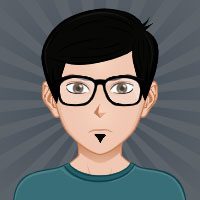Drug addiction is a chronic illness marked by obsessive, or uncontrollable, drug seeking and use despite negative effects and potentially long-lasting changes in the brain. The negative behaviours found in drug users may result from these alterations in the brain. Drug addiction is a relapsing condition as well. Relapse is the act of using drugs again after making an effort to stop.
The following activities must be assisted by addiction treatment:
renounce drug use
Be effective in your family, job, and community by abstaining from drugs.
What are the remedies for drug abuse?
There are numerous approaches to treating drug addiction that have been effective, such as:
Evaluation and treatment for co-occurring mental health concerns, such as depression and anxiety, long-term follow-up to prevent relapse, behavioural counselling, medicine, medical devices, and applications used to ease withdrawal symptoms or provide skills training.
Success may depend on a wide spectrum of care, a personalised treatment plan, and available follow-up choices. Medical and mental health services should be used during treatment as necessary. Community- or family-based recovery support networks may be included in post-treatment care.
How are drugs and equipment used to treat drug addiction?
To treat co-occurring problems, prevent relapse, and manage withdrawal symptoms, medications and technologies can be employed.
Withdrawal. During arizona detox centers, medications and equipment can assist control withdrawal symptoms. Detoxification is merely the initial stage of the process; it is not “therapy” in and of itself. After detoxification, patients who do not receive any more therapy typically start using drugs again. Almost 80% of detoxifications at treatment institutions used medication, according to one study (SAMHSA, 2014). The NSS-2 Bridge electronic stimulation device received a new indication from the Food and Drug Administration (FDA) in November 2017 for use in easing opioid withdrawal symptoms. The electrical pulses sent by this gadget, which is positioned behind the ear, activate certain brain nerves. Lofexidine, a non-opioid medication intended to lessen opioid withdrawal symptoms, was also given FDA approval in May 2018.
prevention of relapse. Patients can utilise medicine to lessen cravings and restore normal brain function. Addiction to opioids (such as heroin and prescription painkillers), tobacco (such as nicotine), and alcohol can all be treated with medications. To treat stimulant (cocaine, methamphetamine) and cannabis (marijuana) addiction, researchers are working on new drugs.

Leave a Reply